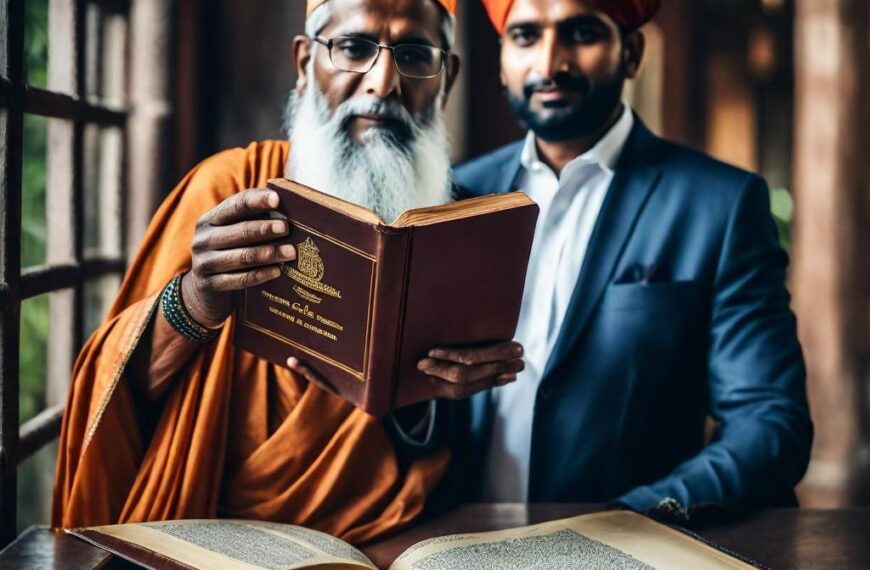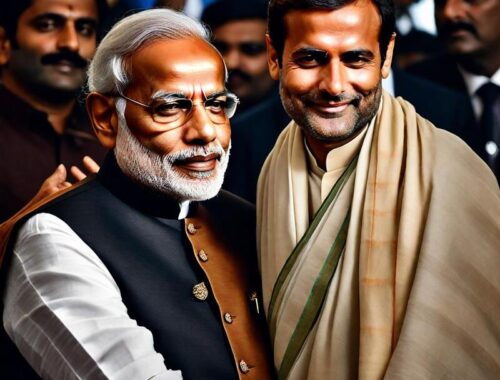
uniform civil code
India is a diverse country and we have different religions living in our country. So the concept of a UCC (Uniform Civil Code) in India has been a subject of intense debate and discussion for several decades in India. A UCC aims to provide uniform rules for personal matters including marriage, divorce, inheritance, and adoption that apply to all people, regardless of religion.
What does Indian Constitution say about Uniform Civil Code?
The Constitution of India under Article 44 one of the Directive Principles of the State Policy, the state shall endeavour to secure for the citizens a uniform civil code through the territory of India.
A Uniform Civil Code aims to provide a standard set of rules covering personal concerns such as marriage, divorce, inheritance, and adoption for all people, regardless of faith.
This guiding concept pushes the Indian government to work towards establishing a set of laws that apply universally to all people, regardless of religion or other connections, notably in aspects of personal law such as marriage, divorce, inheritance, and adoption. However, unlike basic rights, directive principles cannot be legally enforced by courts.
India’s longstanding discourse on the implementation of a Uniform Civil Code (UCC) has been marked by nuanced debates intertwining principles of secularism, religious freedoms, and cultural pluralism. This complex interplay reflects the diverse fabric of Indian society, where myriad traditions and beliefs converge. As the nation grapples with the quest for uniformity in civil laws, it navigates the delicate balance between upholding individual liberties and fostering social cohesion in a rich tapestry of cultural diversity. While some have advocated for the introduction of a UCC to promote gender equality and secularism, others are concerned about respecting multiple religious and cultural customs.

Explain different civil laws in India
- Hindu personal law: The Hindu personal law is based on old religious writings and practices. The Hindu Marriage Act (1955). Hindu law in India largely handles personal affairs for those who identify as Hindus, Buddhists, Jains, or Sikhs. It addresses a variety of topics, including marriage, divorce, succession, adoption, and maintenance. Hindu law has evolved and been codified to a large extent.
- Muslim personal law: The Muslim personal law (Shariat) Application Act (1937). Muslim Personal Law in India is largely based on Islamic principles and applies to issues of personal status, family relations, and succession for Muslims. Unlike the previously described uniform civil code, which seeks to provide a similar set of regulations for all people, Muslim Personal Law is unique to the Muslim community and is based on Islamic Sharia.
- Christian Personal Laws: These are governed by the Indian Christian Marriage Act of 1872 for marriage and divorce, and the Indian Succession Act of 1925 for succession.
- Parsi (Zoroastrian) Personal Laws: The Parsi Marriage and Divorce Act of 1936 governs marriage and divorce, whereas the Indian Succession Act of 1925 governs inheritance.
- Jewish Personal Laws: Marriage may be regulated by Jewish law or the Special Marriage Act of 1954; divorce by Jewish law or the Special Marriage Act of 1954; and succession principally by the Indian Succession Act of 1925.
Politics
Modi’s forceful position on the UCC during the 2024 general election campaign mirrors the Bhartiya Janata Party’s (BJP) long-standing aim of implementing the UCC and abolishing personal laws governing marriage, divorce, and succession. Supporters assert that the Uniform Civil Code (UCC) bolsters national cohesion and advances gender equality, serving as a unifying force while ensuring uniform rights for all citizens, irrespective of religious backgrounds. However, there are fears that its implementation may impinge on the rights and unique customs of the state’s minority populations. In a thought-provoking statement, M.K. Stalin, the Chief Minister of Tamil Nadu, articulated that the notion of a uniform nation doesn’t inherently translate into a harmonious one. Expressing concerns, many apprehend that the Uniform Civil Code (UCC), while aiming for uniformity, might inadvertently blur the lines of tolerance. This viewpoint underscores the delicate balance between unity and diversity, emphasizing the need to preserve pluralistic values amidst efforts towards legal uniformity.
Why this topic is controversial in India:
The debate over India’s Uniform Civil Code (UCC) is intricately tied to the nation’s religious and cultural diversity, reflecting the complexities of coexistence and legal uniformity. The idea of a unified civil code, which aims to promote equality and justice, is being opposed owing to fears about encroaching on religious autonomy and customs. Critics worry about the possible erosion of minority rights, perceiving it as a mirror of dominant beliefs. The pursuit of gender justice is a contentious battleground, where advocates champion its potential benefits while opponents scrutinize its actual impact, fearing unforeseen consequences lurking beneath the surface. This dichotomy underscores the complexity of striving for equality and highlights the need for nuanced dialogue and thoughtful consideration of the multifaceted implications involved. The subject remains politically controversial, impacted by the historical backdrop and the complexities of the current legal framework, making it difficult to reach an agreement that respects both individual rights and cultural diversity.
Conclusion
The Uniform Civil Code remains a topic of significant debate in India, touching on the intersection of law, religion, and social justice. While the idea of a UCC is rooted in the constitutional mandate of equality and secularism, its implementation requires careful consideration of India’s diverse social fabric. The potential of a UCC lies in its ability to create a more unified legal system that transcends religious boundaries, offering equal rights to all citizens, especially marginalized groups such as women.
However, the journey towards a UCC must be navigated with sensitivity and respect for cultural diversity. It should aim to harmonize rather than homogenize, ensuring that the rights of various communities are protected while promoting a progressive legal framework. Public discourse, legal reforms, and a gradual, consensual approach could pave the way for the successful implementation of a UCC, contributing to a more inclusive and egalitarian society.
In conclusion, the Uniform Civil Code represents both a challenge and an opportunity for India. It challenges the nation to rise above communal lines and embrace the principles of equality and justice. At the same time, it offers an opportunity to strengthen the foundation of a truly secular and democratic society, where the law is the same for all, regardless of religion, caste, or gender. The path forward requires a balanced approach that honours India’s pluralism while advancing the cause of social justice and legal equality.

Cyber Crime
You May Also Like

International Law and Conflicts: Navigating a Complex Global Landscape
February 8, 2025
Electoral Reforms in India
February 21, 2024

4 Comments
Pingback:
Pingback:
yahari wuebker
yahari wuebker
User Login
The point of view of your article has taught me a lot, and I already know how to improve the paper on gate.oi, thank you.